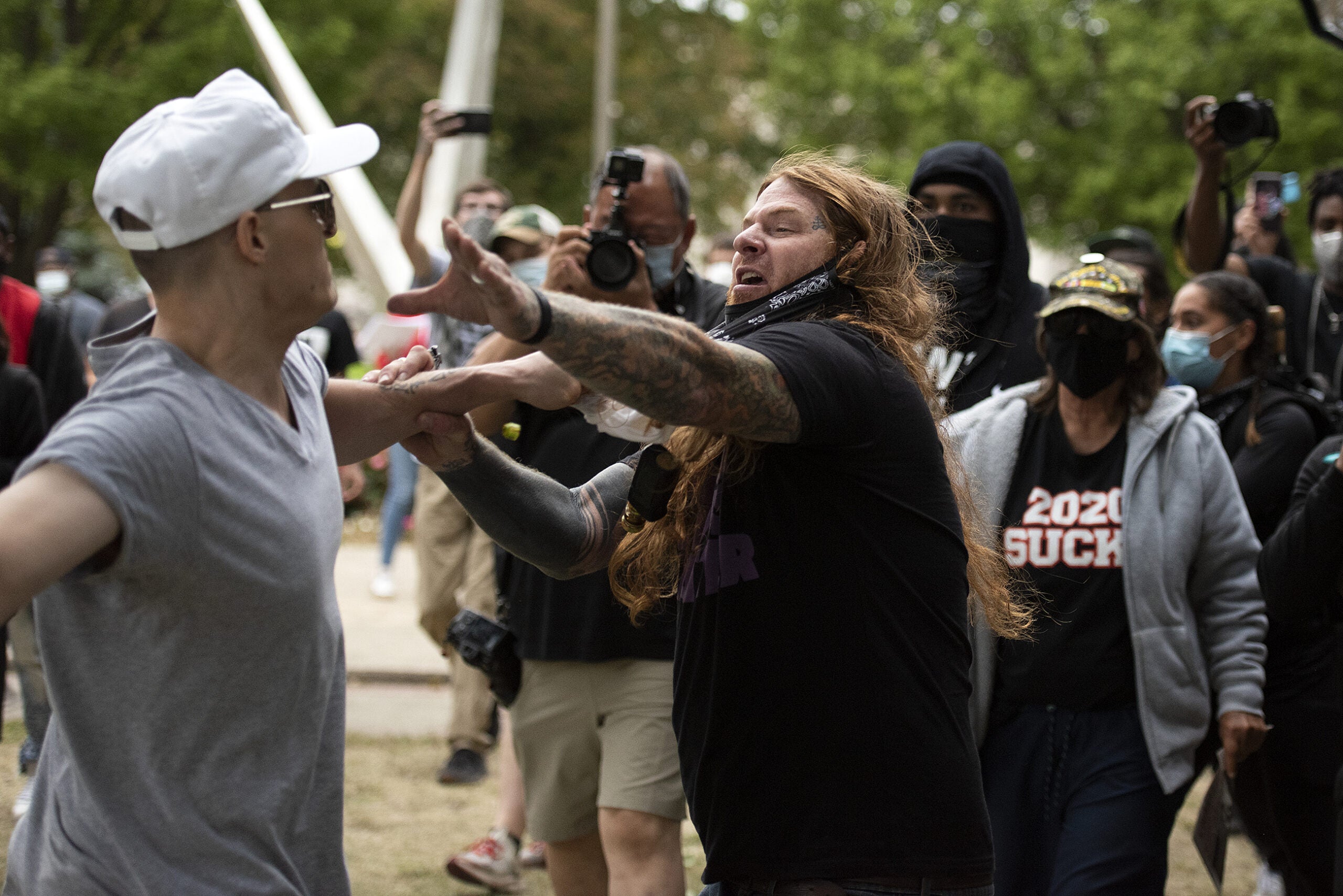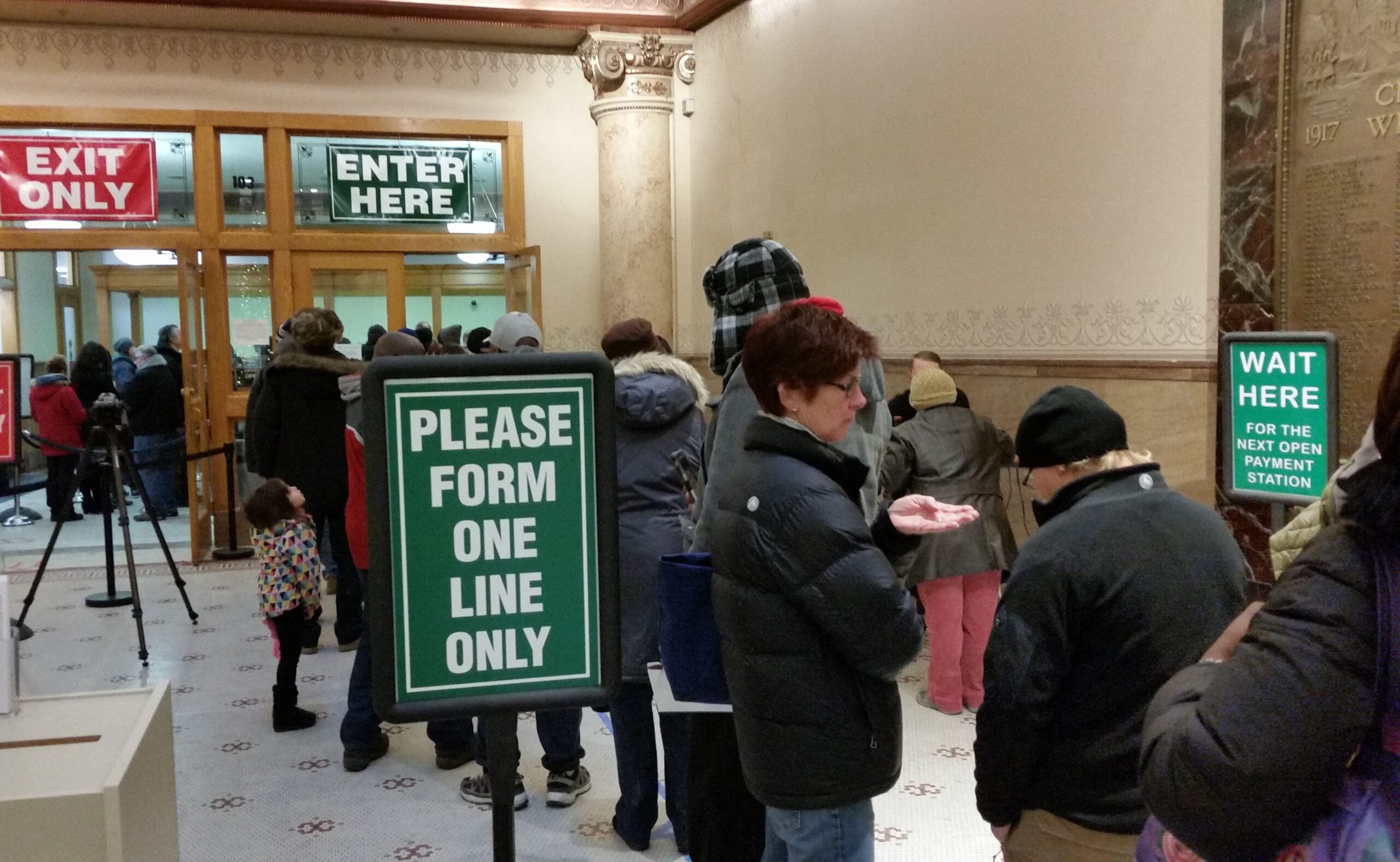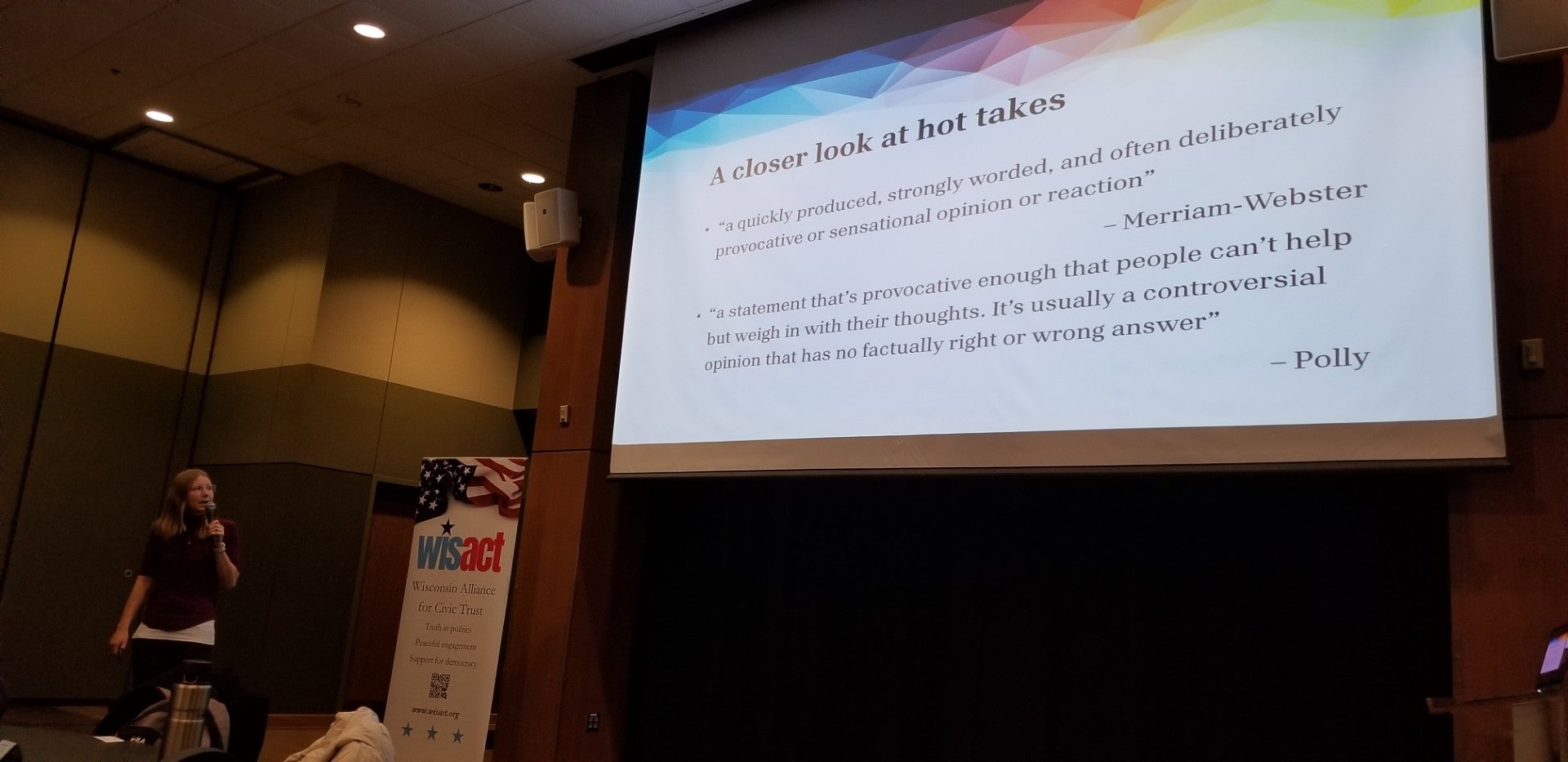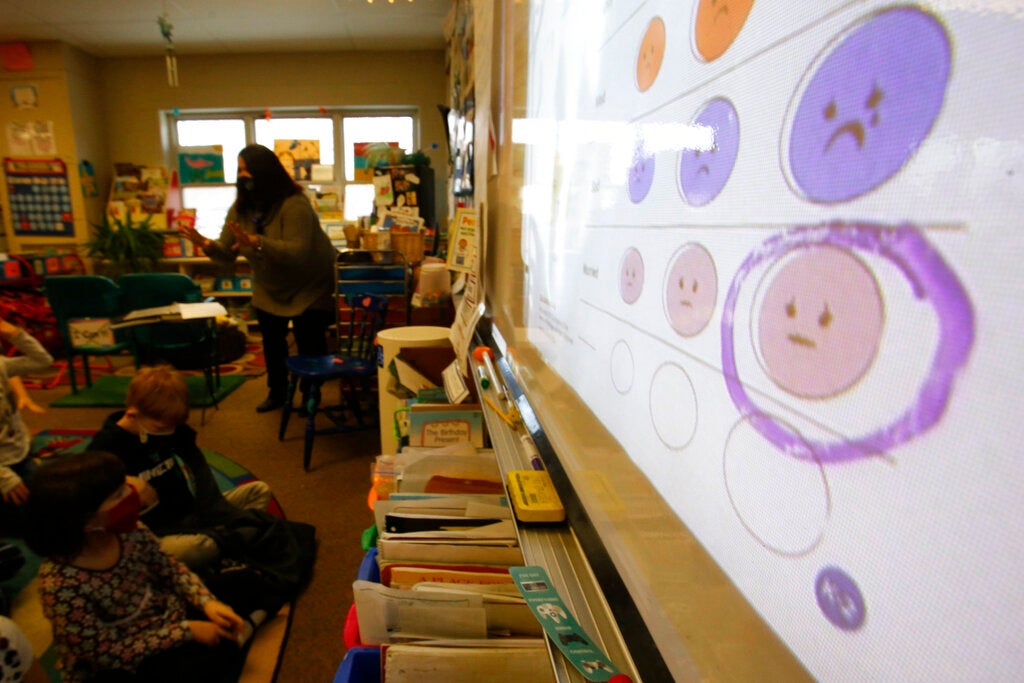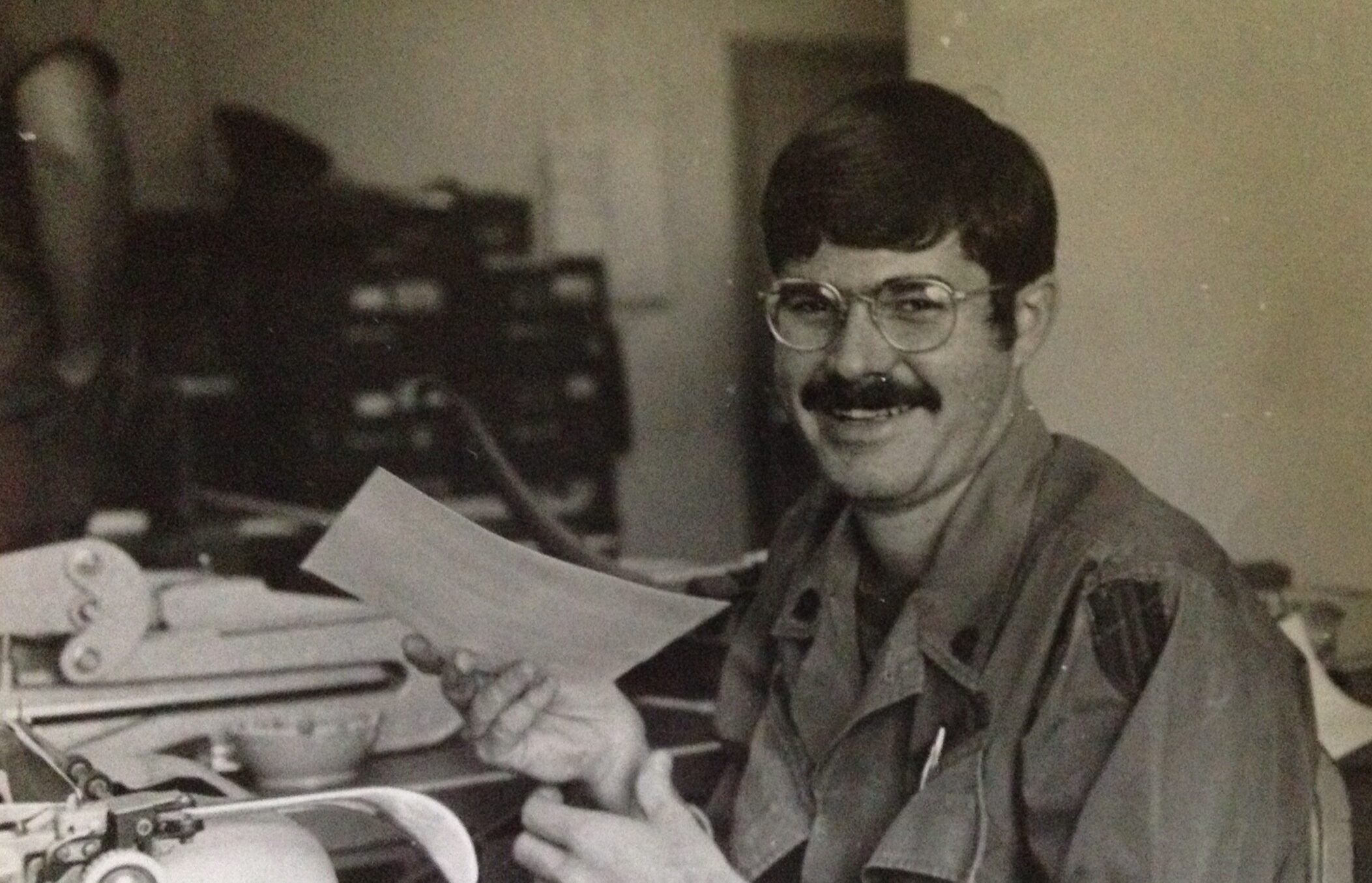On Tuesday, hundreds of thousands of people will vote in the 2022 midterm election. Ryan Martin, a University of Wisconsin-Green Bay psychology professor who researches anger, said that many of those voters are no doubt motivated by anger.
“People don’t necessarily want to reduce their anger over politics,” Martin told Wisconsin Public Radio’s “The Morning Show” on Monday. “Election results have very, very real consequences, and it’s okay for people to be angry about those consequences. What matters more is how they tend to express that anger.”
Anger can be productive, Martin said. But for positive social change to take place, anger needs to be rooted in accurate information, he added.
News with a little more humanity
WPR’s “Wisconsin Today” newsletter keeps you connected to the state you love without feeling overwhelmed. No paywall. No agenda. No corporate filter.
“We really have to pay attention to (the information) coming from the politicians who are trying to manipulate our emotions,” he said.
According to a Washington Post-ABC News poll released Friday, nearly 90 percent of American adults are concerned about politically motivated violence this midterm. But anger rarely leads to violence, Martin said.
“I think what we’ve been seeing lately is a willingness to use violence as a means of getting what you want instead of trying to move toward … productive approaches,” he said.
The following interview was edited for brevity and clarity.
Kate Archer Kent: Why do politics elicit such strong emotions?
Ryan Martin: People get angry about politics for the same reasons they get angry about lots of things. People get angry when they are treated unfairly or treated poorly, when someone they care about is treated unfairly or poorly or when their goals are blocked. Politicians and others have so much power over us people are likely to experience anger around those things.
KAK: A 2021 University of Colorado Boulder study shows angry politicians create angry voters. Why might politicians want to create angry voters?
RM: There’s a couple things that are happening here. One is that anger is a motivator. If you’re an angry politician, and you want to get your people to the polls, it makes sense to rile them up. The other piece of this is the modeling element, meaning that if you’re a leader who tends to express your anger in a really aggressive, hostile way, that motivates your supporters to also express their anger in a hostile, aggressive way.
KAK: Can the politician go too far in riling people up?
RM: I absolutely think so. I think the last few years has definitely shown us how quickly anger can turn to violence, especially when people aren’t necessarily trying to stop that violence.
KAK: Is there a link between anger and political bias?
RM: There’s a couple of things we really have to pay attention to coming from the politicians who are trying to manipulate our emotions. One is the tendency for exaggerated claims or even flat out dishonesty and the way in which that can impact or affect people’s emotional experience. The other piece is the selective attention piece. We aren’t paying attention to the full story and social media has made this so much worse. People are reacting to a very small version of what’s actually going on, and it’s being fed by politicians, their peers and the social media algorithms that tend to drive that anger.
A final thought to this is the tendency to feel really isolated around elections. One of the interesting things that happens during an election is you get a count of how many people agree or disagree with you. And it can feel really isolating and really frustrating to find yourself living in a place where you see so many other people who feel differently than you do.
KAK: Last week, the San Francisco Police Department said U.S. House Speaker Nancy Pelosi’s husband was attacked with a hammer by a person with political motives. How concerned should people be that anger in politics is turning toward violence?
RM: I think we should be very concerned. Stories like that and stories like the January 6th insurrection are real, and they’re frightening. Oftentimes, they are driven by anger and they are driven by misinformation. And they are also driven by a strategy and a willingness to be violent. Anger doesn’t always and doesn’t often lead to violence. There’s lots of ways to express anger that aren’t aggressive and that aren’t even necessarily hostile. And so it’s more than anger. It’s a willingness to do things like use your anger in a way that hurts someone.
KAK: Can anger be a positive tool?
RM: Yeah, it absolutely can. And we have seen that time and time again. That anger is often a motivator behind protests and social change and efforts for social change. The emotion itself in some ways gets a bad rap.
This is one of the most important things I would say is that people don’t necessarily want to reduce their anger over politics. I think that election results have very, very real consequences. And it’s okay for people to be angry about those consequences. I think what matters more is how they tend to express that anger. Is that anger going to be productive? Is it going to be healthy for them? Is it going to be healthy for the people around them? And I think what we’ve been seeing lately is a willingness to use violence as a means of getting what you want instead of trying to move toward some of those more productive approaches.
KAK: It’s so tempting to stay glued to social media or TV or radio for the latest updates on election news on election night. How do you balance that craving with your normal routine on a Tuesday?
RM: First of all, be aware of how it’s impacting and whether or not there’s anything you can do with that information. I voted a few days ago, and because I voted early, I’m at a point now where I’m not really paying attention to a lot of that stuff because it doesn’t matter to my vote at this point. Final thing I’d say, is that a lot of the tried and true approaches for dealing with anger more generally are still going to work here. The deep breathing, the relaxation, finding a pause before you respond to things … All those things are still valuable and can help work if you want to reduce your anger in that moment, and I say that even when that anger is justified, those basic approaches are still going to work for people.
Wisconsin Public Radio, © Copyright 2026, Board of Regents of the University of Wisconsin System and Wisconsin Educational Communications Board.

